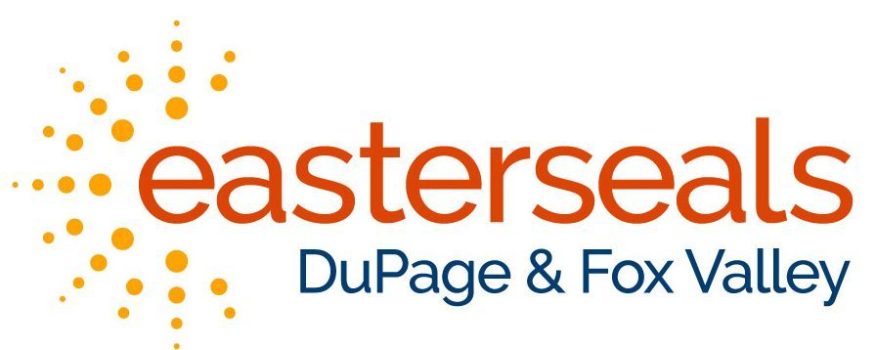By: Dr. Peter Smith, Associate Professor of Pediatrics, University of Chicago
Editor’s Note: Through a partnership with the University of Chicago, developmental- behavioral pediatrician, Dr. Smith leads a new Neurodevelopmental Disability Clinic at Easter Seals DuPage & Fox Valley which provides support for children with Down Syndrome, ADHD or Autism, disabilities that may include complex medical and emotional issues.
Dr. Smith also leads Easter Seals DuPage & Fox Valley’s multi-disciplinary team including an occupational therapist, speech-language pathologist, developmental therapist, audiologist and parent liaison in the Medical Diagnostic Clinic. This clinic specializes in early diagnosis of young children.
Current Processes Are Not Working
Individuals with Down syndrome (DS) are living longer and healthier lives than ever. There is consensus that complete information needs to be offered to all parents of children with Down syndrome (both pre- and postnatal) regarding the current experiences, health outcomes, lifespans, and quality of life for individuals with DS. DS represents a dramatic “success story” and the lives of individuals with Down syndrome are improving in every way measurable. Unfortunately, this good news is too often not being shared with new and expectant families. Doctors are not prepared for this task and parents report frustration with the process.
 On the Cusp of Potentially “Game Changing” Therapies
On the Cusp of Potentially “Game Changing” Therapies
In addition to the dramatic changes that have already occurred, DS as a clinical and research arena is on the cusp of developing even newer therapies that have the potential to improve cognitive outcomes. Multiple research teams have protocols already enrolling study subjects. For example, the team at the Jerome Lejeune Institute in Paris has an active study underway that employs a combination of folic acid and thyroid hormone, targeting infants and primarily measuring cognitive performance during and after therapy. Their preliminary work has shown significant promise and preliminary results might be released later this year. Because of their early successes, there are ongoing efforts to mount a similar study here in the United States. The NIH has recognized this new era and has launched an international registry (see https://dsconnect.nih.gov ). However, this “breaking news” has not been widely disseminated. Many worry that recruitment to these studies could be diminished due to the lack of awareness by primary care providers and the general public, which would slow the progress of the studies.
 A Growing Number of States Have Addressed the Issue: Including Illinois
A Growing Number of States Have Addressed the Issue: Including Illinois
Because of the lack of general knowledge of both the dramatic improvements in the lives of individuals with DS and the emerging clinical trials in DS, a coalition lead (of course) by family support organizations has emerged. They have initiated a new “information rights” movement that includes clinicians, policymakers, legislators, and researchers that has worked to enact new state laws addressing the problem of misinformation. The first to successfully pass legislation was Massachusetts: in 2012, a coalition helped to pass a state law, mandating that clinicians provide accurate information and Referral to parent support organizations. Most recently, Illinois, passed unanimous legislation in 2015, which proves that this is truly a bipartisan issue.
To learn more about our specialty clinics including the Medical Diagnostic Clinic, visit eastersealsdfvr.org.






 These unfunded programs primarily involve higher education and human services which include child care and many other grant funded programs. Up to this point, there’s been a lack of urgency between the two sides in resolving the budget impasse sparking fears that a budget won’t be reached into the spring or much later.
These unfunded programs primarily involve higher education and human services which include child care and many other grant funded programs. Up to this point, there’s been a lack of urgency between the two sides in resolving the budget impasse sparking fears that a budget won’t be reached into the spring or much later. from birth to three-years old. In addition to the developmental benefits of Early Intervention for children, it’s critical that policy makers understand the fiscal benefits the Early Intervention program provides. Potentially restricting eligibility for Early Intervention will escalate the number of children who need more intensive and costly services in the future.
from birth to three-years old. In addition to the developmental benefits of Early Intervention for children, it’s critical that policy makers understand the fiscal benefits the Early Intervention program provides. Potentially restricting eligibility for Early Intervention will escalate the number of children who need more intensive and costly services in the future.  ne of the biggest concerns for Easter Seals DuPage & Fox Valley is the uncertainty in relation to the
ne of the biggest concerns for Easter Seals DuPage & Fox Valley is the uncertainty in relation to the 